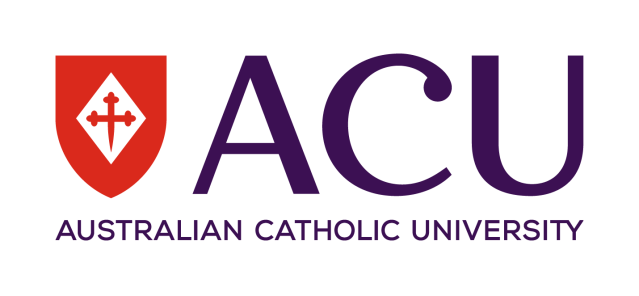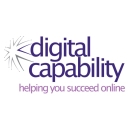2019 Eportfolio Forum
Portfolios: Reflecting, Connecting and Credentialling
20-21 November 2019
Australian Catholic University (ACU), Canberra Campus (Signadou)
Home – Call for Proposals – Registration – Program
*****
The call for proposals for the 2019 Eportfolio Forum on 20-21 November 2019 at Australian Catholic University (ACU), Watson Campus, Canberra are now closed.
For more information or to enquiry about presenting, please contact eportfoliosaustralia@gmail.com
Submissions are now opened for:
- Poster – A0 static presentation which is pinned up at the Forum (both days)
- Short (peer reviewed paper) presentation – 15 min presentation + 5 min Q&A – published peer reviewed paper (20 Nov) – click here to download the Short (peer reviewed) presentation paper – Style Guide
- 20×20 presentation – 6-7 mins presentation consisting of 20 slides which run for 20 secs each on day one (20 Nov)
- Short workshop – 40 mins hands-on/interactive session (21 Nov)
- Facilitate a professional conversation (Ideas Exchange) – lead a group discussion around a topic during the ‘Ideas Exchange’ working lunch (21 Nov) – no presentation slides permitted
- Long workshop – 2.25 hr hands-on/interactive session (21 Nov)
Call for proposal timeline:
- 5 April – Open call for proposals
- 17 June – Close call for proposals
- Week beginning 8 August – Notify outcome of call for proposal submissions (including notification of invitation to submit a peer reviewed paper)
- 19 August – Submission of peer reviewed papers
- 23 September – Notify of acceptance of peer reviewed pending any required revisions
- 21 October – Submission of updated peer reviewed papers
- 20-21 November – 2019 Eportfolio Forum
Proposal themes and sub-theme:
Proposals should fit into one or more of the following conference sub-themes. Those proposals not fitting into these themes should provide an explanation of how the proposal supports the overall event theme of “Portfolios: Reflecting, Connecting and Credentialling”.
You will be asked to explain how your proposal meets the conference theme and selected sub-theme(s), and the learning outcomes for participants of your proposal as part of the submission process.
CONFERENCE SUB-THEMES:
- Reflecting:
- Identifying, developing. reflecting and curating evidence
- Reflecting on personal and professional journeys and identities
- Purpose and process of reflection and reflective practices: What is the best way to do this?
- Reflection for continuous improvement of teaching, collaborating, leadership
- Sharing learning journeys as narrative (stories)
- As methodology
- As curatorial practice (method) for an audience
- Connections between a ‘good’ portfolio and …:
-
- Teaching and learning
- Workplace or industry
- Career development and progression
- Professional development (includnig CPD)
- Accreditation/Certification
- Graduate capabilities and employability skills
- Developing and curating a living story
- Social networks
- Professional and Public vs Learner and Private identities
- Research spaces
- Literacy development and capacity building
- Credentialling:
-
- Portfolios and microcredentials
- Who warrants and certifies artefacts and evidence?
- Linking microdentials to professional/academic standards
- Standards and systems for certification and issue
- Assessment issues and cost involved in portfolio assessment for certification
- Streamlining accreditation using eportfolios
- Self testing (automated) credentialing vs human intervention determination
- Employers and their need for credentials
- Investment and successful outcomes:
-
- Financial, time, training, human resources and other resources
- Maintaining, sustaining and/or sustainability
- Mainstreaming and normalising eportfolio behaviour
- Viewing and valuing eportfolio practice and produce
- The technical aspects of eportfolios:
-
- Technical standards
- Interoperability and integrating eportfolios to LMS/ other systems (technical/technology connections)
- Learning how to use the technology (reflecting on use/us)
- Exporting and ongoing access eg post graduation or between eportfolio tools
- Pedagogies and technologies – reciprocal and informing one another
- Establish pedagogies and assessment needs before selecting and implementing the eportfolio tool
- Academic digital literacies and capacities for building new knowledge in digital spaces
Major sponsors:
 |
 |
Also proudly brought to you by the in-kind support from: ePortfolios Australia, Australian Catholic University, Charles Sturt University, Deakin University, Digital Capability, Edith Cowan University, Europortfolio, Griffith University, Melbourne Graduate School of Education – University of Melbourne, Monash University, Otago Polytechnic, PebblePad, Queensland University of Technology, RMIT University, University of New South Wales, University of Queensland, University of Western Australia and the Association for Authentic, Experiential and Evidence-Based Learning (AAEEBL).
For more information:
eportfoliosaustralia@gmail.com or (+61) 0400 732 270 or subscribe to receive regular updates.
